10 Ways to Pair iPhone with Macbook
Apple’s suite of products like the iPhone, iPad, Mac, and Watch have always been considered the next generation and leaders in their respective fields, but if there’s one thing that could make them better, it’s putting They are well connected "ecosystems". This ecosystem combines most of the apps and features people use on their devices into a unified experience that works together and behaves similarly no matter which device you choose.
So an app, website, or service will look and feel the same on your iPhone, iPad, or Mac. If you own multiple Apple devices, you can expect it to work with other devices, so you can, for example, take a call on another device if you don't have an iPhone, or start a draft message on your Mac and finish it on your iPhone It, or a tablet. There are a lot of possibilities, and it's hard to say that the iPhone and Mac are the two Apple devices that will benefit the most from this ecosystem.
If you own both an iPhone and a Mac and want to pair them with each other, this article should explain everything you need to know about what you can do and how to connect the two devices into one entity.
Pair iPhone with Mac: Things to Know
There are several ways to pair iPhone with Mac (or Macbook). The most basic way of linking the two devices occurs when you initially set them up. Yes, the moment you log into your Apple ID from your iPhone and Mac, both devices will be connected through Apple iCloud in some way. Using iCloud, you can back up pictures on your iPhone, sync passwords, addresses, sensitive information, and all other data from other apps on your iPhone and Mac. Once enabled and set up correctly, you'll be able to access the same content on any app you use on any device.
In addition to syncing via iCloud, users can transfer files and other content via a USB to Lightning cable or over Wi-Fi, or they can use AirDrop to instantly drag and drop the same items. Apple's ecosystem also allows people to receive and make iPhone calls directly on their Mac, and you can configure it to receive and send SMS messages on your Mac without using your iPhone.
Another way to pair your Mac and iPhone is to use Handoff, a feature that lets you start something on one Apple device and then pick it up seamlessly on the other. The same functionality behind the Universal Clipboard tool allows users to copy text, images, and videos from iPhone to Mac and vice versa. Apple also allows its music subscribers to sync their audio libraries across all their devices using Sync Library.
Requirements:
To pair your iPhone with your Mac, you'll need to make sure you have the following items ready before setting up pairing:
- An iPhone running the latest version of iOS
- Mac running the latest version of macOS
- Valid Apple ID account
- Wireless networks that both iPhone and Mac can connect to.
- USB-A to Lightning Cable or USB-C to Lightning Cable included with iPhone
Setup: Make sure iPhone and MacBook use the same Apple ID
Before you pair any Apple devices with each other, you need to make sure they are logged in with the same Apple account, i.e. using the same @iCloud.com email address. This is important because if two devices use two separate iCloud accounts, no data will be synced between the two devices since iCloud is the platform that acts as a bridge between the two devices.
That’s why you need to be signed in to the same Apple ID on both devices before you can pair them. Before continuing with this tutorial, make a note of the iCloud email you actively use and your Apple account password.
On iPhone
If you have not signed in any Apple ID on your iPhone, you can sign in to iPhone by opening the "Settings" app and clicking "" at the top card" to log in.
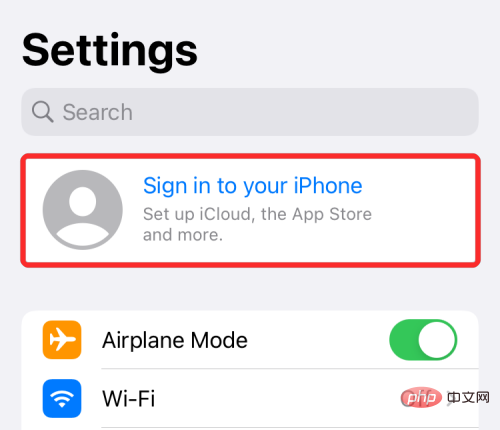
Now enter your Apple ID and password on the next screen and if prompted enter the one that should be sent to your phone or any other Apple device Six-digit verification code.
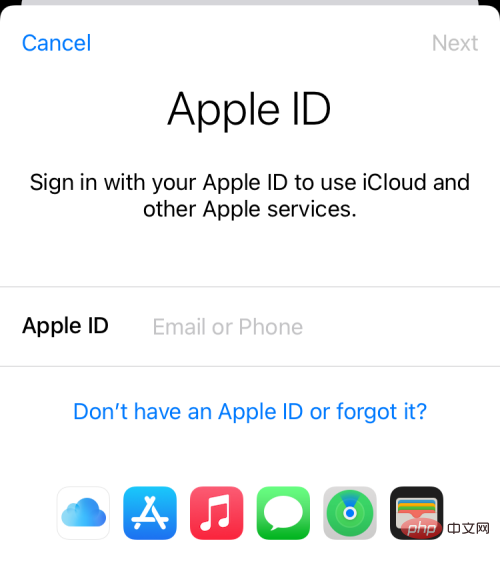
#If you are signed in to your Apple account but want to use another account to pair your iPhone with your Mac, you must sign out of it. To sign out of your Apple Account, open Settings and clickyour name at the top.
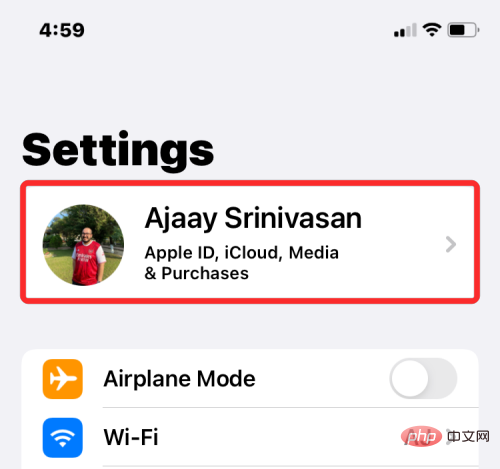
Inside the Apple ID screen, scroll down to the bottom and click Sign Out.
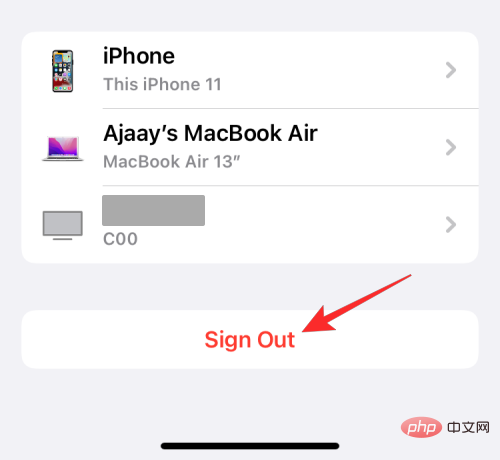
On the next screen, enter your Apple ID password and click Close in the upper right corner.

You will now be signed out of your existing Apple account. You can now follow the initial steps in this section to log in to the correct Apple account.
On Mac
If you are not signed into any Apple ID on your Mac, you can sign in by opening System Preferences in Launchpad, Dock, or Finder on your Mac . When the "System Preferences" window appears, click the "Login" option in the upper right corner.
Next, if prompted, enter your Apple ID and password and the six-digit verification code.
If you are already signed in to your Apple account but want to change it to a different iCloud address, you can do so by opening System Preferences and clicking Apple ID .
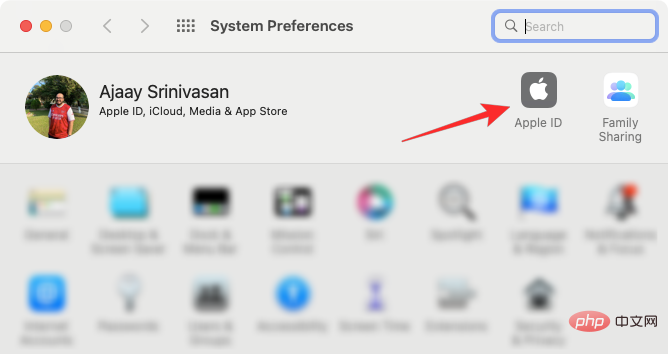
In the next window, select the Overview tab from the left sidebar and click Exit at the bottom.

#You will now be signed out of your existing Apple account. You can now follow the initial steps in this section to log in to the correct Apple account.
How to Pair iPhone with Mac
Apple’s iPhones and Macs are designed to work closely with other devices in the ecosystem and can be paired in a number of different ways, most of which don’t even require Connect the two devices with a cable and it will work.
Method #1: Pair with a wired connection
Before you can sync your iPhone with your Mac, you need to establish a wired connection between the two devices.
With both your iPhone and Mac powered on, connect them using the USB to Lightning cable that came with your iPhone.
Which cable should you use?
Some recent Macs come with USB-C ports, while older models use USB-A ports to connect devices. If you have an iPhone 12 or newer, you'll have a USB-C to Lightning cable that's compatible with modern MacBooks. If you have an iPhone 11 or earlier device, you'll have a USB-A to Lightning cable that works with older-generation Macs. If you have a new Mac or an old iPhone, or vice versa, you'll need to find an adapter that connects the two devices.
Sync iPhone with Mac
After you connect your iPhone to your Mac, you can get started on your Mac by opening the Finder app.

#In the Finder app, your iPhone should appear in the left sidebar. If not, it will appear after you click on the "Location" section. When your iPhone says Connected, click it.
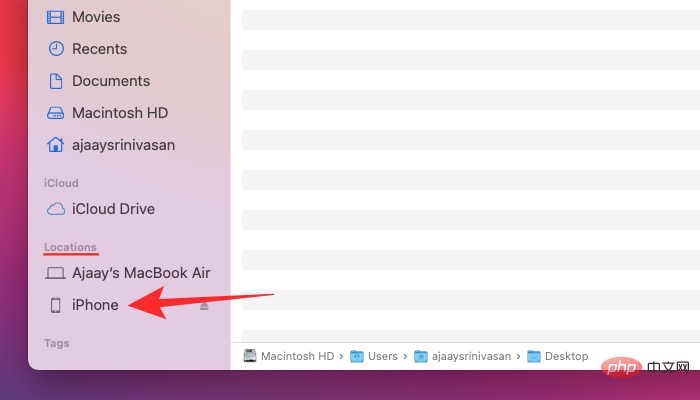
If this is your first time connecting your iPhone to your Mac, click Trust on Mac at the Trust iPhone prompt that appears on the screen.
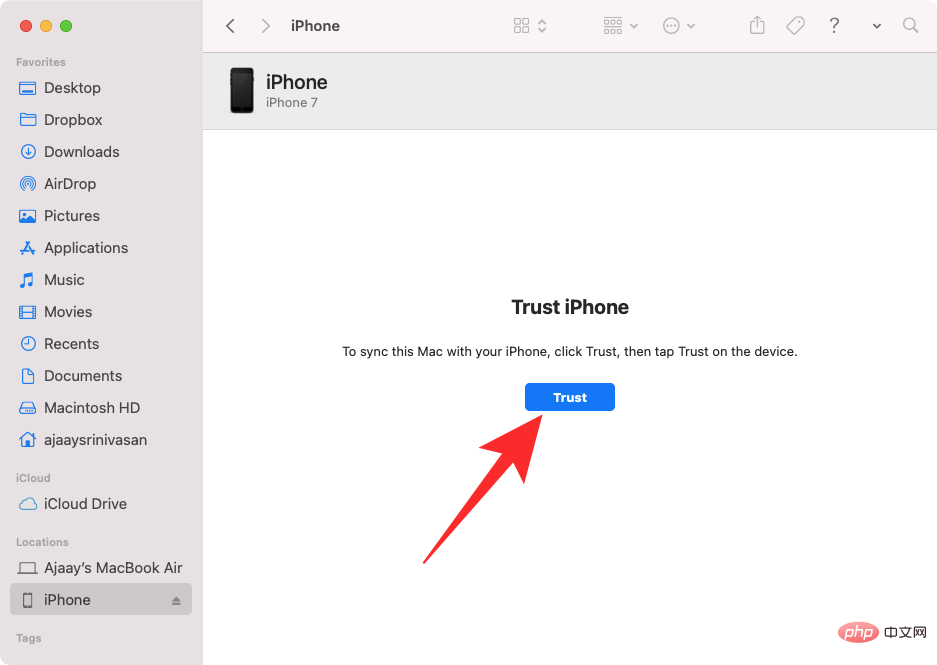
Similarly, you will see the Trust this computer dialog box on your iPhone to confirm your connection to your Mac. To continue, click Trust.

You will now need to enter your device password to approve.
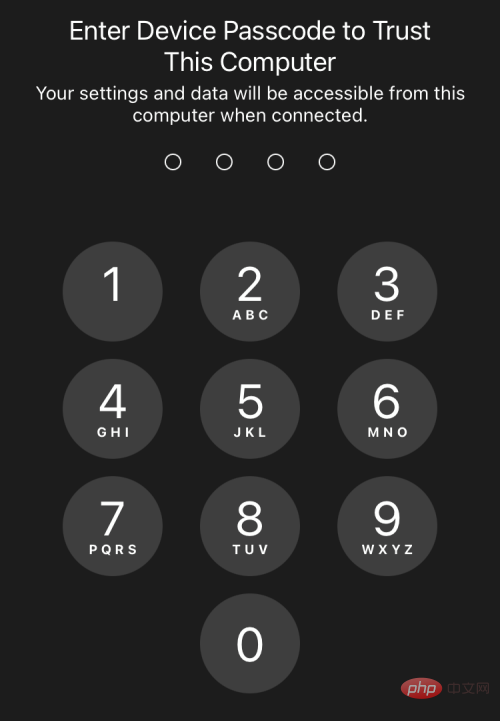
#After completing all this, you will be able to see your iPhone and all its details in Finder.
To sync all data from iPhone to Mac, click "Sync" in the "General" tab.
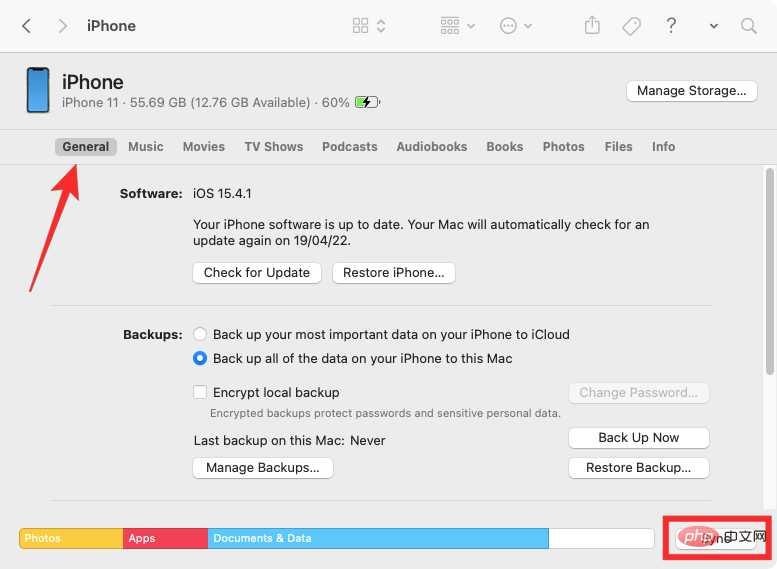
To sync selected files and data from Mac to iPhone, you can select the corresponding tab at the top, and after entering it, select the top
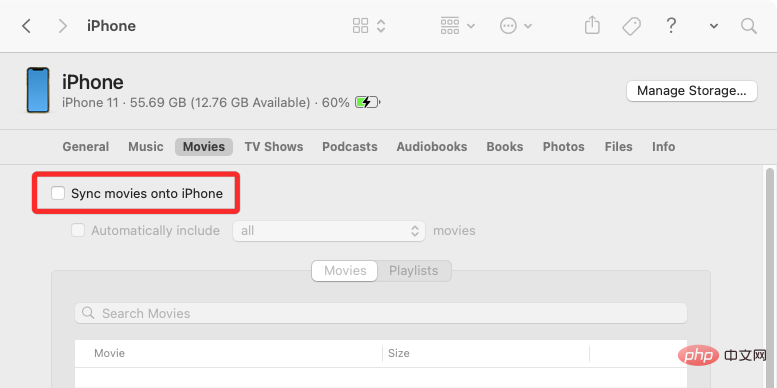
To save a backup of your iPhone to your Mac, under Backup select Back up All data on your iPhone to this Mac and click Click Now to back up.
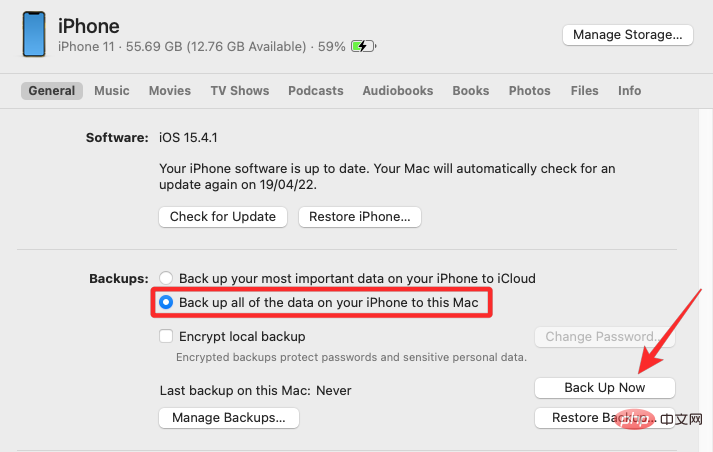
Method #2: Pair iPhone and Mac over Wi-Fi
If you have established a wired connection using Method #1, you will be able to Pair your iPhone wirelessly with your Mac for future use. This works when your iPhone and Mac are connected to the same Wi-Fi network, in which case your Mac will be able to sync data with your iPhone without a physical connection.
To set up wireless sync using Wi-Fi, connect your iPhone to your Mac using a USB-to-Lightning cable, as in method #1. Now, open the Finder app like before and select your iPhone from the left sidebar.
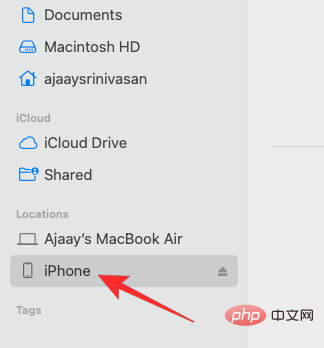
When your iPhone appears, use the General tab to scroll down and check Show this iPhone on Wi-Fi frame. After turning on this option, click Apply in the lower right corner.
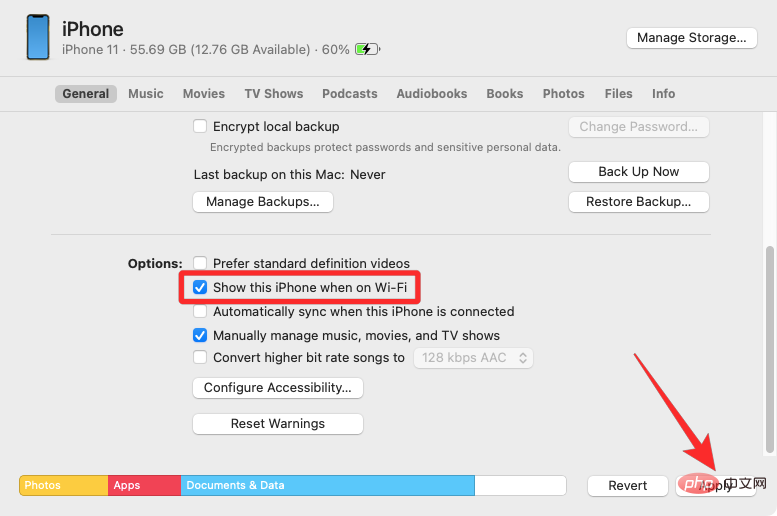
#When enabled, your iPhone will continue to appear in the Finder app even if your iPhone is disconnected from your Mac.
If your Mac and iPhone are both connected to a Wi-Fi network, you can use the on-screen backup or sync options to store your iPhone backup on your Mac, or pair your Mac files and content with iPhone sync.
Method #3: Pair using iCloud
Perhaps the easiest and easiest way to permanently pair your iPhone and Mac is to use iCloud. When both devices are signed into the same Apple account, you can wirelessly share all of your user data between the two devices, even if they are connected to different networks. When you enable iCloud and configure it to sync selected content across multiple devices, the data on all those devices remains intact, helping you continue from one device on another.
On iPhone
To enable iCloud and set it up on iPhone, open the Settings app and tap the Apple ID card at the top.

In Apple ID, select iCloud.
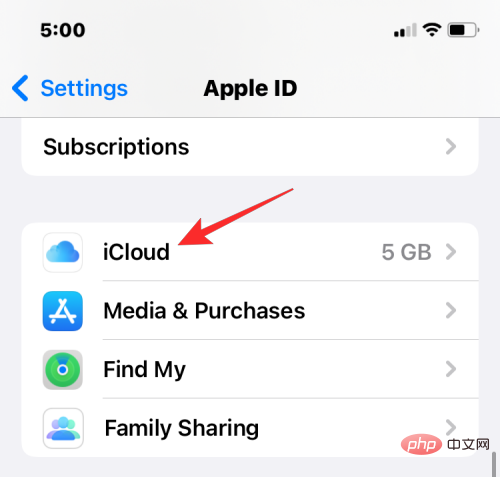
On the next screen, you can turn on iCloud for all the apps and services listed on the screen by turning on the switch adjacent to the app/service.
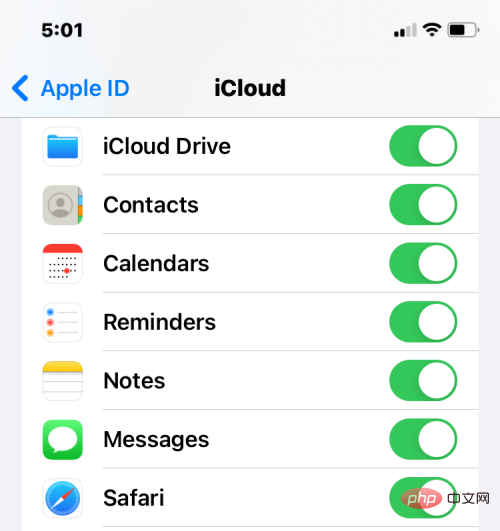
#If you only want to enable iCloud for certain apps, you can disable switching for apps and services that don't need to be synced across other devices.
If you want your Mac and other Apple devices to remember passwords and other sensitive information you save on your iPhone, you can click Keychain on this screen. On the next screen, turn on the iCloud Keychain switch to pair your iPhone and Mac to preserve passwords.
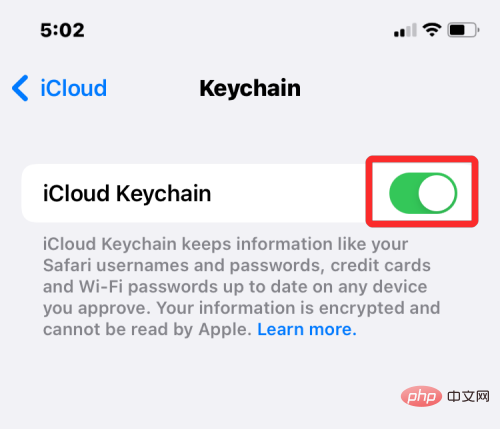
On Mac
To ensure all your content is synced between iPhone and Mac, you must also enable iCloud on macOS and choose to sync function. To do this, go to Apple ()Menu>System Preferences.
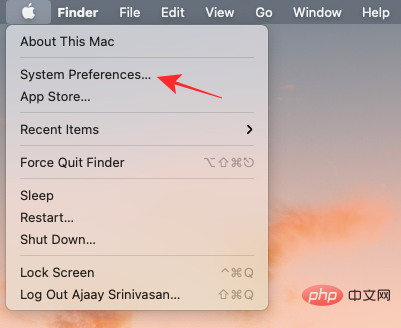
In System Preferences, select Apple ID.

When your Apple account loads, click the iCloud tab in the left sidebar.
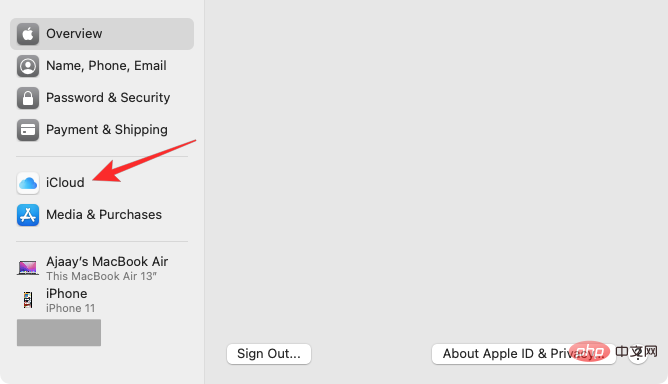
#On the right panel, you should see a list of services that can be synced via iCloud. To choose which services or apps are synced with your Mac, check the boxes next to them.
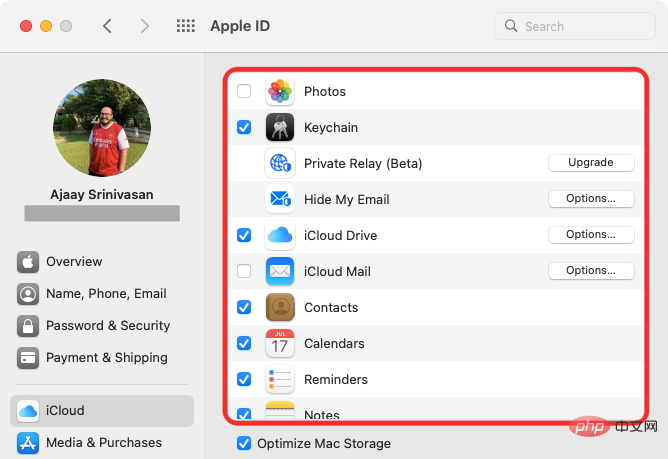
#Some apps will also offer customization options that let you choose which parts of the app to sync. To configure them the way you like, click the option to the right of the selected app and follow the on-screen instructions to customize further.
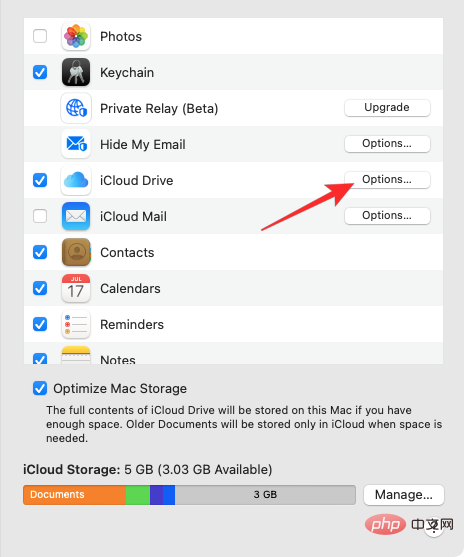
Method #4: Make and receive iPhone calls on Mac
As part of the Apple ecosystem, if you pair your Mac with an iPhone , you can make and receive calls directly from your Mac. This way, you can take important calls on your Mac without having to physically access your iPhone. This feature requires that both devices use the same Apple ID, sign in to FaceTime using the same Apple ID, and be connected to the same Wi-Fi network.
On iPhone
To pair your iPhone with your Mac to make calls, open the Settings app and select Phone.
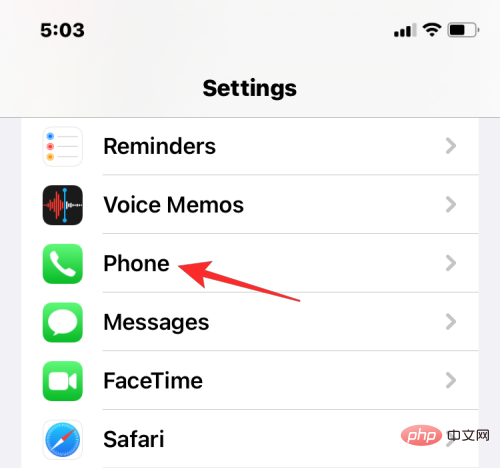
In the phone, click Call on other devices.
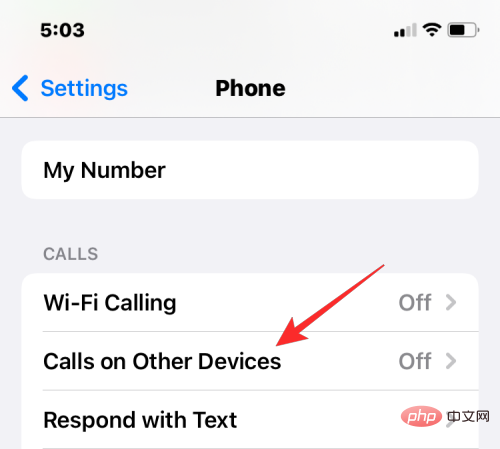 ##
##
On the next screen, turn on the "Allow calls on other devices" switch at the top.
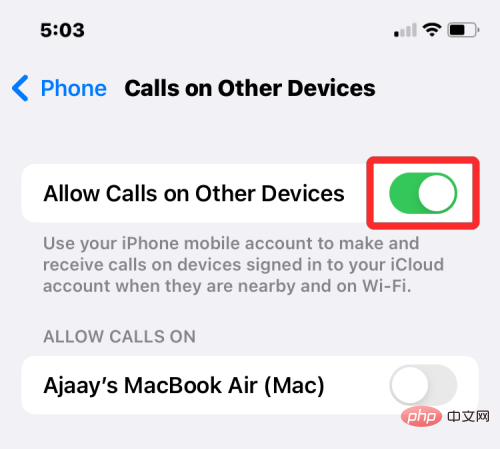
Once enabled, find your MacBook or Mac from the list of devices displayed under "Allow Calls" and open the macOS device with which you want to enable phone calls adjacent switch.
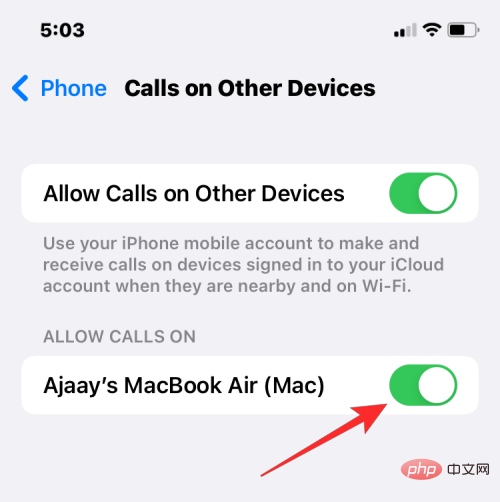
#You can now make calls directly from your Mac without using your iPhone. Apple also allows users to transfer ongoing calls from iPhone to Mac and vice versa. If you wish to switch devices during a call, you can do so by clicking the Audio tile within the call screen and selecting your MacBook from the list of available devices.
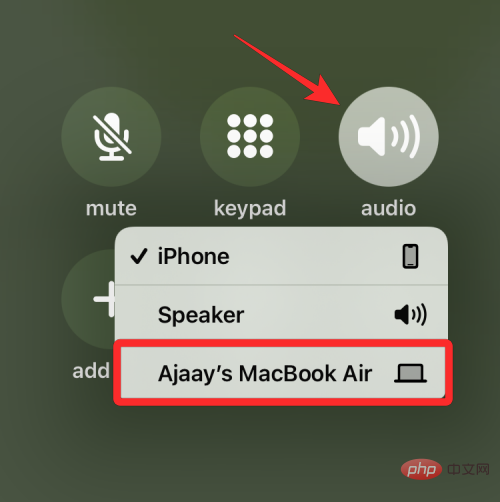
At any time, you can switch back again by tapping the same audio tile and selecting iPhone from the menu your iPhone.
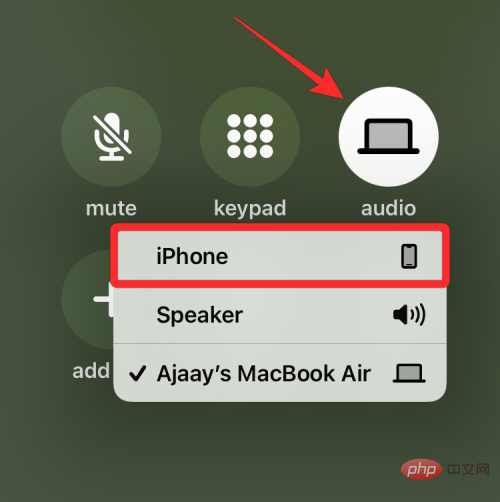
On Mac
While the above method should enable it on your Mac, you can choose this step to ensure the phone feature is turned on or directly on your Mac Enable this feature without consulting the iPhone tutorial above. To pair your Mac with your iPhone for calls, open the FaceTime app on your Mac. Once it opens, click FaceTime from the menu bar and select Preferences.
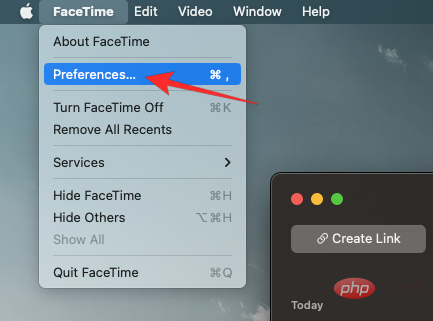
When the Preferences window opens, select the Settings tab at the top and check Calls from iPhoneframe.
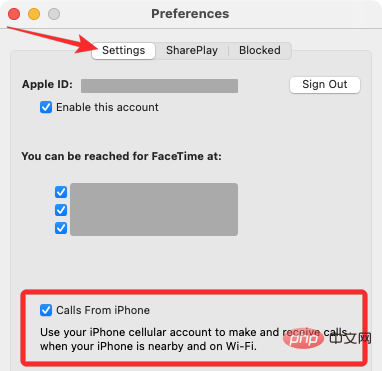
This should route all incoming calls from your iPhone to your Mac, and you can also initiate calls from the FaceTime app on that device.
To make a call on your Mac, open the FaceTime app, hover over the person you want to call in the Recents list, and click to the right of the person's name phone icon. You can also make calls by selecting a number from Contacts, Calendar, Safari, or any other application available on your Mac.
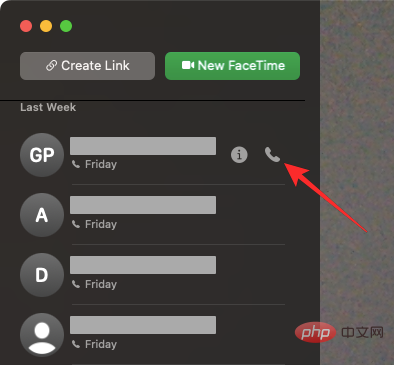
#When you receive a call, you will see a banner in the upper right corner of your Mac screen. You can click Answer to answer the call on your Mac.
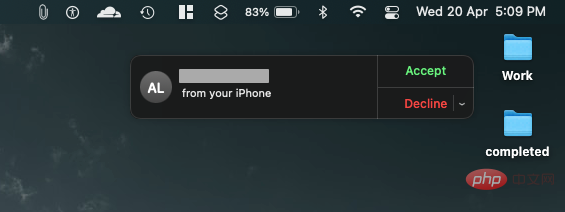
Method #5: Turn on SMS forwarding to Mac
The Mac has a Messages app similar to the one on the iPhone, but by default you can only Send and receive iMessage texts. But just like making phone calls, you can also pair your iPhone with your Mac to receive all SMS messages you receive on your iPhone and reply to them as texts. This is possible through a feature Apple calls "Text Message Forwarding," which when enabled allows you to send and receive SMS messages directly on your Mac.
On iPhone
To enable test message forwarding, open the Settings app on your iPhone and select Messages.
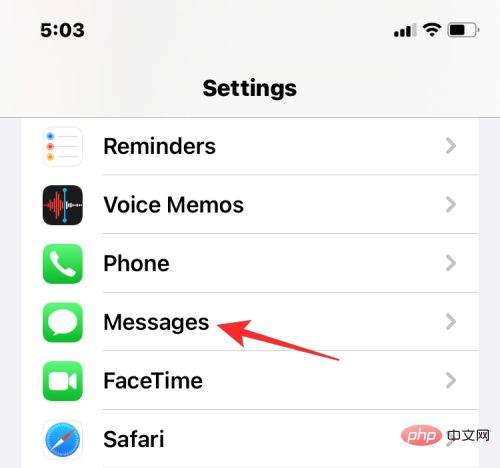
#In the message, scroll down and click SMS Forwarding.

On this screen, turn on the toggle next to Mac.
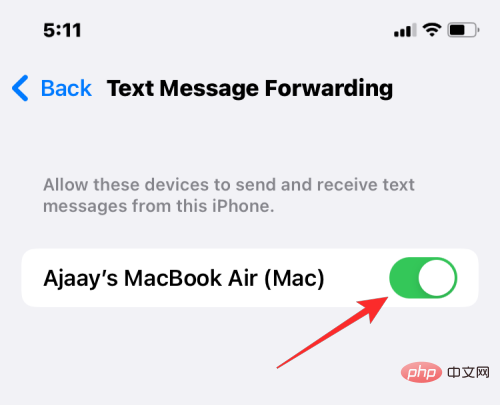
#This should route all your SMS messages from your iPhone to your Mac.
On Mac
While the above tutorial is sufficient to turn on SMS forwarding, your Mac's Messages app must be configured to receive messages from all of your phone numbers. To do this, open the Messages app on your Mac and go to Messages > Preferences from the top menu bar.

To ensure you receive messages from your iPhone, click the iMessage tab at the top and check "You can get messages from ” box next to all phone numbers.
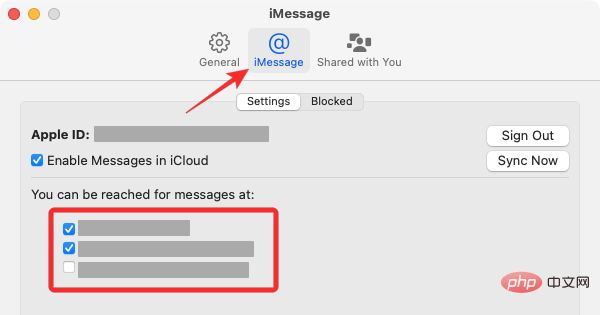
#In the same window, select your primary phone number from the list of options under "Start a new conversation."
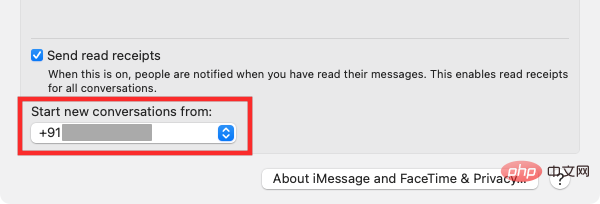
This will ensure that any replies you send from your Mac are sent from your phone number rather than your iCloud email address.
Method #6: Enable Handoff on iPhone and Mac
Apple offers the Handoff feature that allows you to start someone on one Apple device and seamlessly do it on another recover. This feature can be used for a variety of purposes, such as drafting an email on your iPhone and continuing where you left off on your Mac. The Handoff feature connects most Apple devices, such as iPhone, Mac, iPad or Apple Watch, and works with Mail, Maps, Safari, Reminders, Calendar, Contacts, Pages, Numbers, Keynote, and even some third-party apps .
Before enabling Handoff on iPhone and Mac, you need to sort the following:
- Both iPhone and Mac are logged into the same Apple ID.
- Both devices are Wi-Fi and Bluetooth enabled.
On iPhone
To use Handoff to pair your iPhone with your Mac, open the Settings app on iOS and select General".
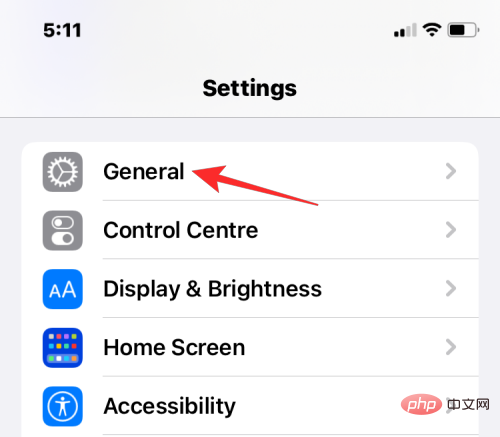
In General, click AirPlay & Handoff.
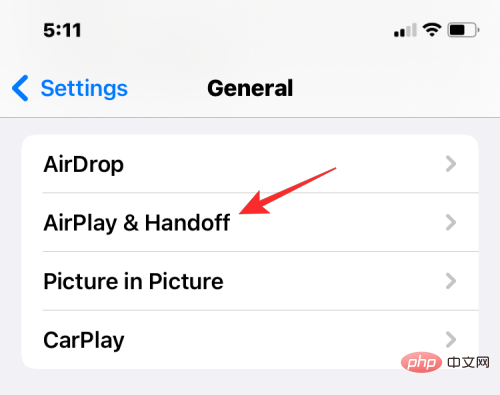
On the next screen, turn on the toggle switch.
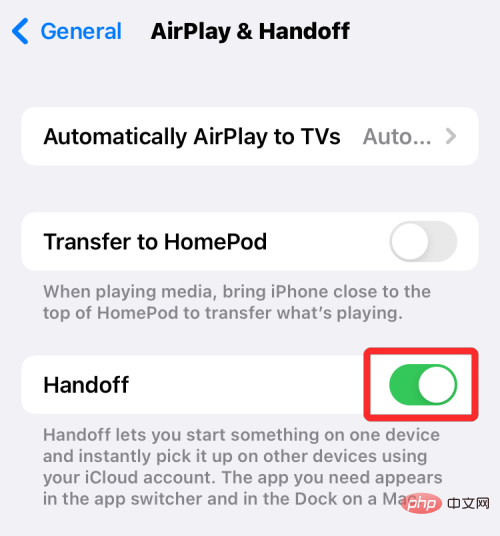
When switching from Mac to iPhone, you will see the Handoff option as a banner at the bottom of the iPhone screen when you access the App Switcher.
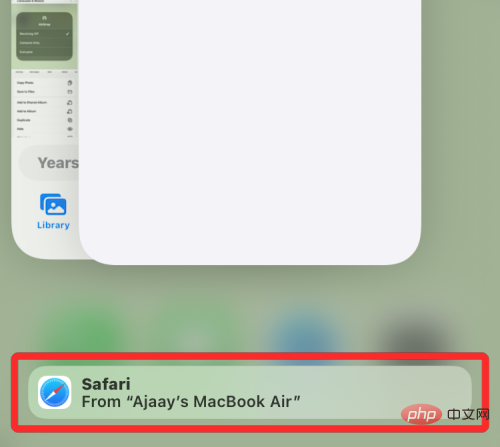
On Mac
To use Handoff to pair your Mac with your iPhone, go to Apple ()icon>System Preferences. You can also open System Preferences from the Dock, Launchpad, or Finder.
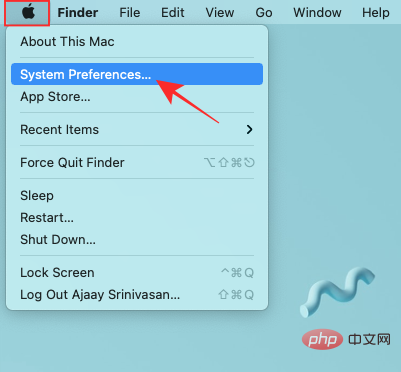
In System Preferences, select General.
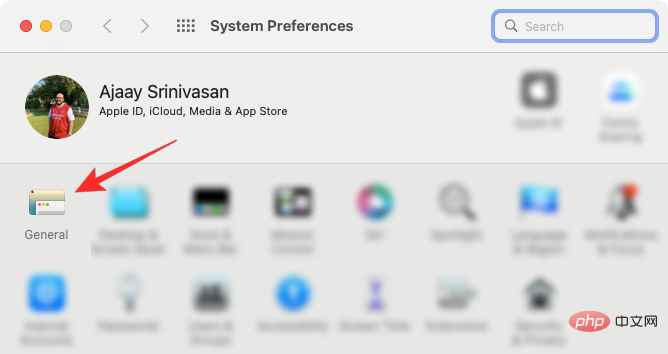
At the bottom of the window, check the Allow switching between this Mac and your iCloud devices box.
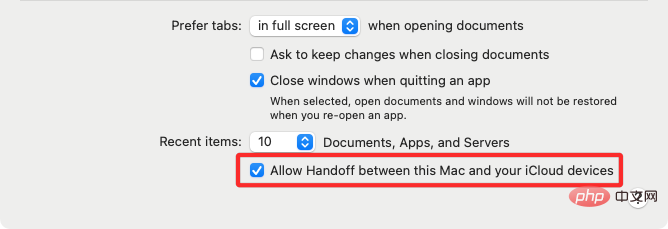
#This should enable Handoff on your iPhone and Mac. Once enabled on both devices, you can use Handoff to switch from iPhone to Mac by clicking the app's Handoff icon in the Dock.
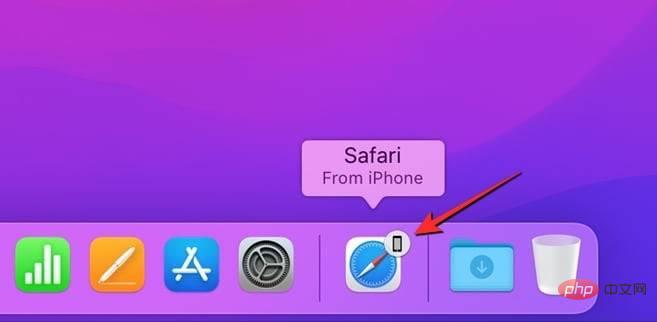 Method #7: Connect iPhone and Mac via Bluetooth
Method #7: Connect iPhone and Mac via Bluetooth
You can use a Bluetooth connection to pair your iPhone with your Mac to share files, share cellular data, Use AirDrop, Handoff and other continuity features. To do this, you need to enable Bluetooth on your iPhone and Mac.
On iPhone
To pair your iPhone with your Mac, open the
Settingsapp on iOS and select Bluetooth.
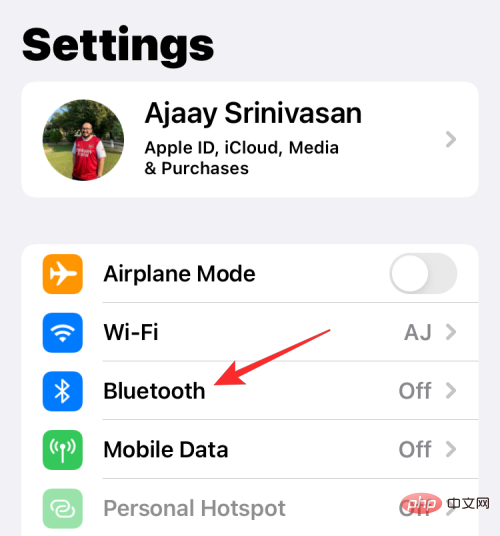 On the next screen, turn on the
On the next screen, turn on the
 #You will now see a list of your recently connected devices via Bluetooth. If you haven't connected your Mac to your iPhone yet, you must pair it manually by selecting your Mac from "Other Devices."
#You will now see a list of your recently connected devices via Bluetooth. If you haven't connected your Mac to your iPhone yet, you must pair it manually by selecting your Mac from "Other Devices."
 On Mac
On Mac
To pair your Mac with iPhone, go to
Apple()icon >System Preferences. You can also open System Preferences from the Dock, Launchpad, or Finder.
In System Preferences, select  Bluetooth
Bluetooth
.
 In the window that opens, click
In the window that opens, click
.
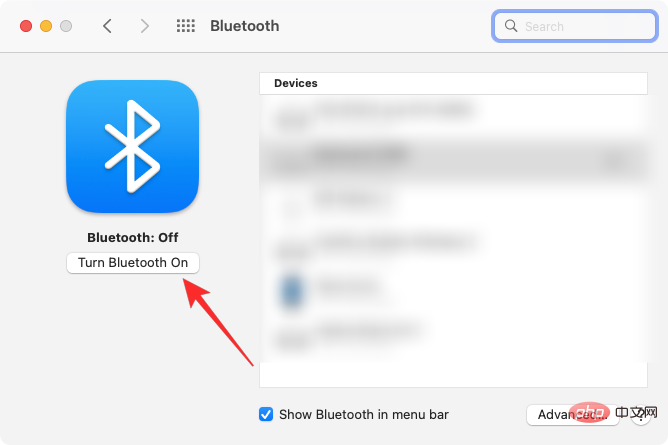 #Your Mac’s Bluetooth will now be turned on, and it will automatically connect to all nearby available devices, provided they are also turned on. If you want to connect your Mac to your iPhone, wait for the screen to show your iPhone, and when it appears, click
#Your Mac’s Bluetooth will now be turned on, and it will automatically connect to all nearby available devices, provided they are also turned on. If you want to connect your Mac to your iPhone, wait for the screen to show your iPhone, and when it appears, click
.
##You will now see a verification code on your Mac and you will need to verify it using the verification code displayed on your iPhone. You may also need to approve the connection on your iPhone to continue. Once the connection is successful, your iPhone will appear in the Devices box and be marked "Connected."
Method #8: Connect your Mac to your iPhone’s mobile hotspot
Apple offers the Instant Hotspot feature that lets you connect your Mac to your iPhone’s cellular data through a personal hotspot. Once paired, your Mac will be able to use your iPhone's mobile data connection and browse the Internet without the need for cables to any devices. For this feature to work, both your iPhone and Mac should be logged into the same Apple ID.
Start Personal Hotspot on iPhone
Before you pair your Mac with your iPhone’s hotspot, you need to turn on mobile data on the latter and then enable its hotspot . To do this, open the Settings app and select Mobile Data.
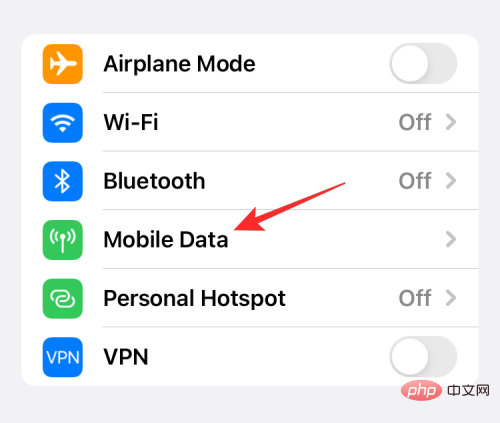
On the next screen, turn on the Mobile Data switch at the top.
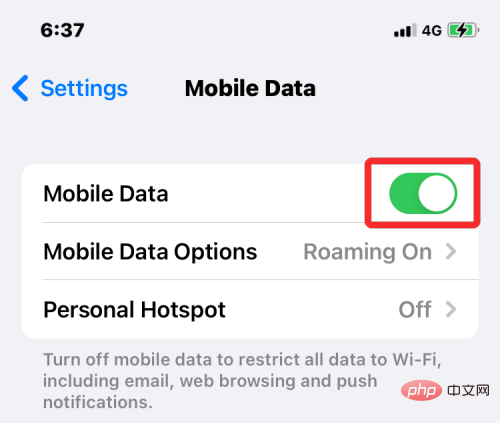
Once enabled, return to the previous screen, the Settings screen, and tap Personal Hotspot.
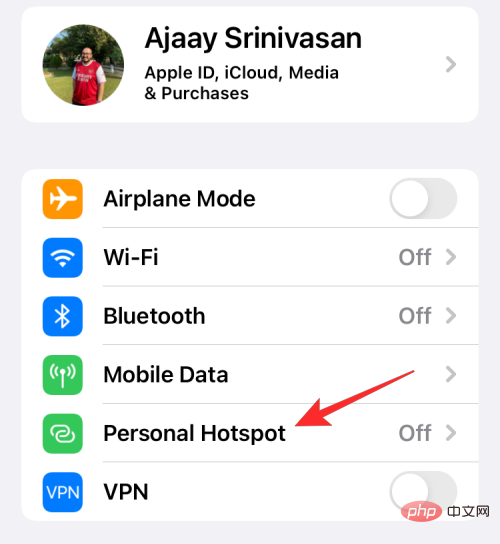
In the personal hotspot, open the at the top to allow others to join the switch.
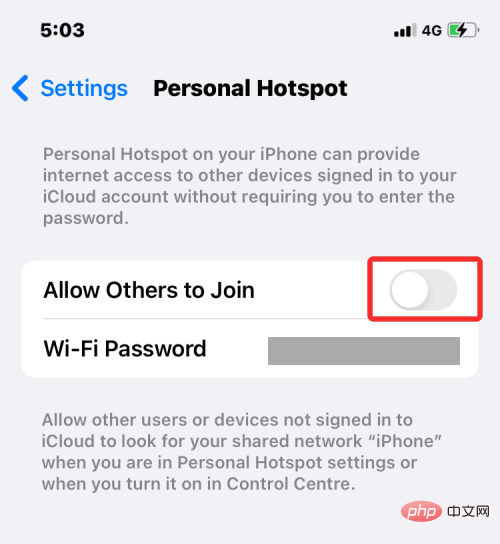
In the prompt that appears, select Turn on Wi-Fi and Bluetooth to enable the mobile hotspot wirelessly.
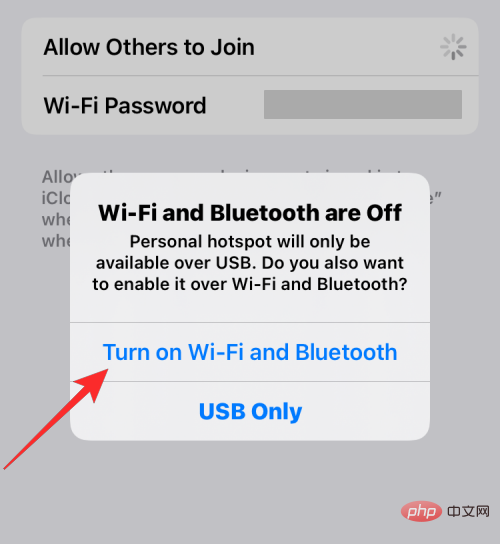
#You have successfully enabled Personal Hotspot on your iPhone. Now it's time to connect your Mac to this hotspot.
Connect your Mac to a hotspot
After you create a personal hotspot, you can connect your Mac to it. To do this, click the Wi-Fi icon in the menu bar and turn on the Wi-Fi switch in the menu that appears.
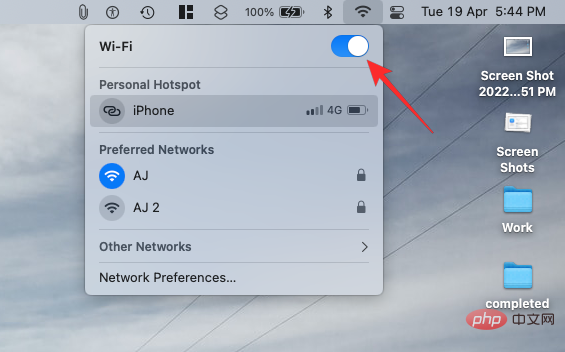
#Your iPhone should now appear under "Personal Hotspot" on other networks. To connect to its hotspot, click on it.
When your Mac is connected to your iPhone’s hotspot, you should see the hotspot icon next to your iPhone turn blue.
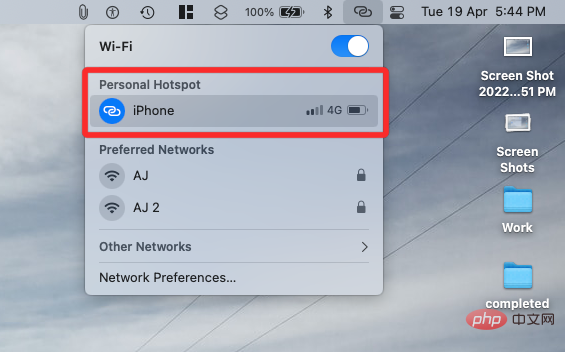
#The Wi-Fi icon in the menu bar will also switch to the Personal Hotspot icon.
Method #9: Use AirDrop to Share Files Between iPhone and Mac
If you just want to pair your iPhone with your Mac for file transfer, then AirDrop should be the perfect answer. With AirDrop, you can share any shareable content between Apple devices, even with other people's iPhones, iPads, and Macs. You can use this feature to share pictures, videos, documents, links, notes, voice memos, locations, contacts, and other items that can be shared from the app.
To use Airdrop, you need to make sure:
- Wi-Fi and Bluetooth are enabled on your iPhone and Mac.
- The personal hotspot feature of iPhone is disabled.
- Keep iPhone and Mac within 30 feet for successful file transfer.
On iPhone
Enable AirDrop to receive files
To enable AirDrop on iPhone, launch Control CenterAnd tap and hold the Wi-Fi icon or Bluetooth icon.
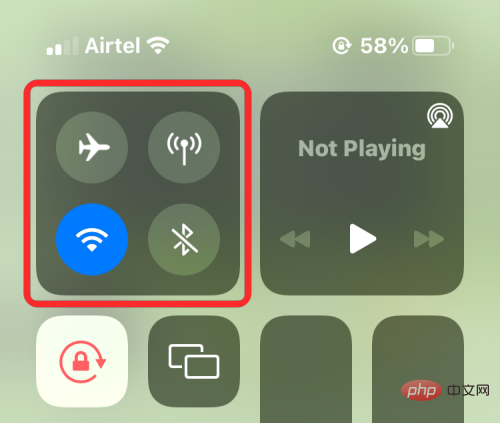
#When you do this, the Network menu in Control Center expands to reveal more options. To enable AirDrop, click the Airdrop icon in the overflow menu .
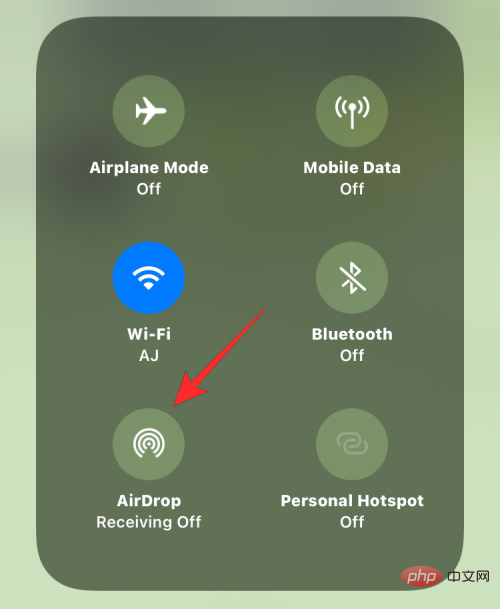
Select "Contacts Only" or "Everyone" to ensure your iPhone can be accessed by you Save the contact details of people or discover everyone around you.
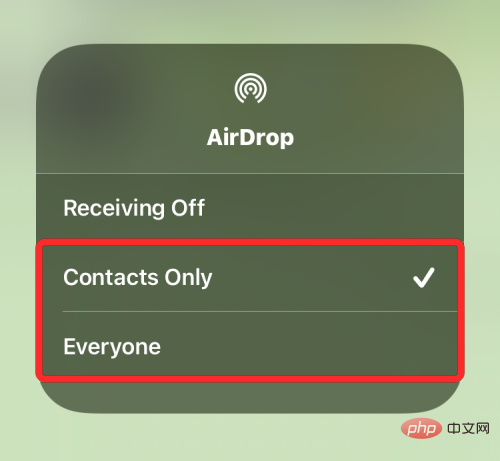
#You have successfully enabled Airdrop on your iPhone. The instructions above apply if you want to receive files from a Mac or other Apple device.
Send files using AirDrop
To send files from iPhone to Mac via Airdrop, find the file or app on your iPhone and open it. Once it opens in full screen mode, tap the share icon (usually located at the bottom of the screen).
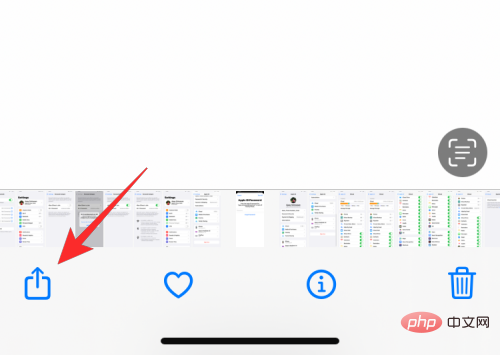
In the share menu, select AirDrop.

On the next screen, you should see all of your AirDrop-enabled Apple devices. Here, click on your Mac.

#Once your Mac approves this file, the transfer will begin and you will hear a tone when it begins. Once completed, you will hear another beep.
On Mac
Enable AirDrop to receive files
To enable AirDrop on Mac, click in the top menu bar Control center icon. In the overflow menu that appears, click the Airdrop icon to open it.
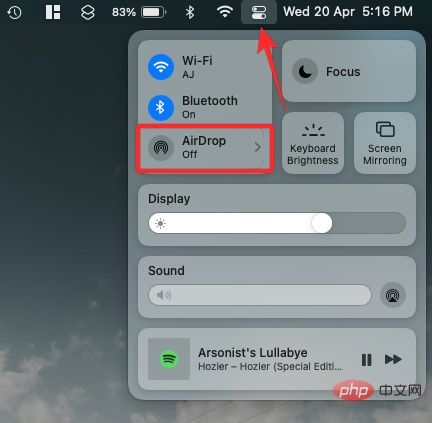
When enabled, your Mac’s Bluetooth will also be turned on and their icons will now turn blue. After enabling airdrop, click the arrow icon to the right of it.
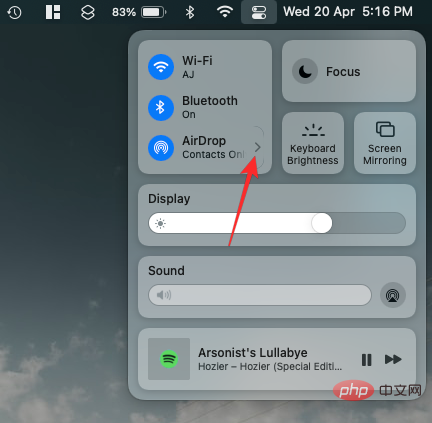
Select "Contacts Only" or "Everyone" to ensure your iPhone can be accessed by you Save the contact details of people or discover everyone around you.
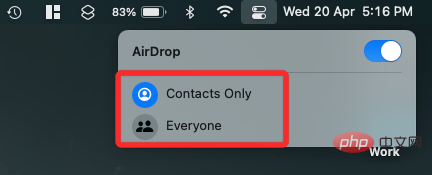
#You have successfully enabled Airdrop on your Mac. The instructions above apply if you want to receive files from an iPhone or other Apple device.
Send files using AirDrop
To send files from Mac to iPhone via Airdrop, find the file or item you want to share and right-click it. To share a project from the application, you can access this menu by clicking File in the top menu bar. In the menu that appears, go to "Share" > "AirDrop".
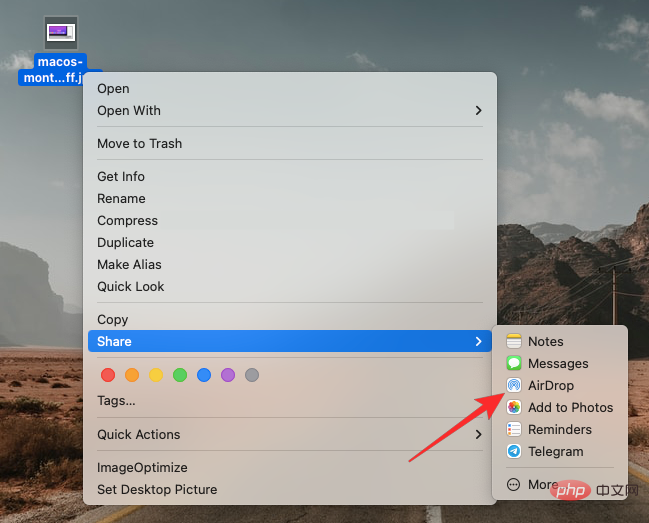
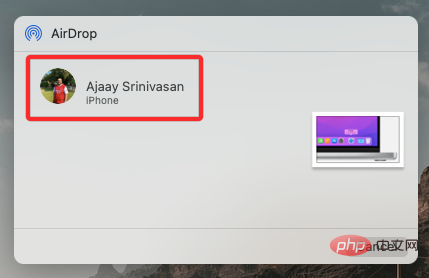
Settings app and select Music.
In Music, turn on theSync Library switch under "Library".
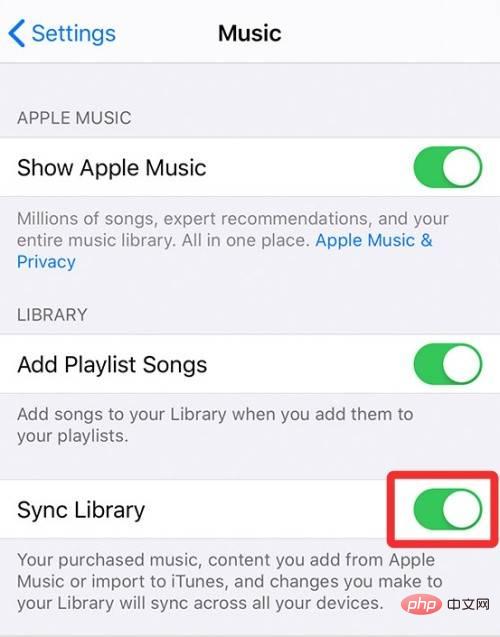
Apple Music app. With the app open, go to Music>Preferences from the top menu bar.
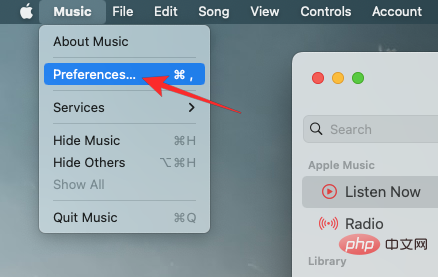
General tab at the top and check the Sync Library box to Enable it. If you want your Mac to download songs in your library as soon as you add them, check the Automatically download box on the same screen.

OK in the lower right corner of the Preferences window.

- Transfer data between iPhone and Mac quickly and easily
- Sync all or selected content from Mac to iPhone both wired and wirelessly
- On both devices Sync ongoing tasks or work between devices so you can start working on one device and continue on another.
- Make and receive iPhone calls directly on Mac
- Get text messages forwarded from your iPhone to your Mac and send replies from it using the same phone number.
- AirDrop files and app items instantly wirelessly without any hassle.
- Back up photos on iPhone and access them on Mac using iCloud.
- Use Handoff to copy and paste content from iPhone to Mac and vice versa.
- With Continuity Camera, you can scan documents from iPhone and move them directly to email, web pages, or apps on your Mac.
- Use Find My to track your iPhone on Mac and vice versa.
- Use a personal hotspot to connect your Mac to your iPhone’s cellular network.
- Sync your music library between Mac and iPhone.
FAQ
- Will you lose data if you pair your iPhone with a Mac?
No. The whole idea behind pairing two devices is to give you access to all the files and content on both devices. If you unpair two devices, your data may be deleted from either of your devices, but should remain intact on the device you originally saved it on.
- Can I send files to my Mac via Bluetooth?
We are familiar with sending music and photos via Bluetooth since the 2000s. But when using Apple devices, you can share files using AirDrop and the transfer happens instantly without taking much time. AirDrop uses WiFi and Bluetooth technology to send items to any Apple device near you.
- Can your music be synced through iTunes?
If you use Apple Music to listen to songs, as long as your iPhone and Mac have synced libraries enabled, everything will sync between the devices. Check method #10 in the tutorial above to learn how to enable this feature. If you have a lot of local audio content and you don't have an Apple Music subscription, you can use methods #1 and #2 to sync your music.
- How to transfer iPhone text messages to Mac computer?
By default, Apple displays all your iMessage texts from your iPhone to your Mac. To view regular SMS messages from your iPhone, you need to enable the text forwarding feature using method #5.
The above is the detailed content of 10 Ways to Pair iPhone with Macbook. For more information, please follow other related articles on the PHP Chinese website!

Hot AI Tools

Undresser.AI Undress
AI-powered app for creating realistic nude photos

AI Clothes Remover
Online AI tool for removing clothes from photos.

Undress AI Tool
Undress images for free

Clothoff.io
AI clothes remover

AI Hentai Generator
Generate AI Hentai for free.

Hot Article

Hot Tools

Notepad++7.3.1
Easy-to-use and free code editor

SublimeText3 Chinese version
Chinese version, very easy to use

Zend Studio 13.0.1
Powerful PHP integrated development environment

Dreamweaver CS6
Visual web development tools

SublimeText3 Mac version
God-level code editing software (SublimeText3)

Hot Topics
 iPhone 16 Pro and iPhone 16 Pro Max official with new cameras, A18 Pro SoC and larger screens
Sep 10, 2024 am 06:50 AM
iPhone 16 Pro and iPhone 16 Pro Max official with new cameras, A18 Pro SoC and larger screens
Sep 10, 2024 am 06:50 AM
Apple has finally lifted the covers off its new high-end iPhone models. The iPhone 16 Pro and iPhone 16 Pro Max now come with larger screens compared to their last-gen counterparts (6.3-in on the Pro, 6.9-in on Pro Max). They get an enhanced Apple A1
 iPhone parts Activation Lock spotted in iOS 18 RC — may be Apple\'s latest blow to right to repair sold under the guise of user protection
Sep 14, 2024 am 06:29 AM
iPhone parts Activation Lock spotted in iOS 18 RC — may be Apple\'s latest blow to right to repair sold under the guise of user protection
Sep 14, 2024 am 06:29 AM
Earlier this year, Apple announced that it would be expanding its Activation Lock feature to iPhone components. This effectively links individual iPhone components, like the battery, display, FaceID assembly, and camera hardware to an iCloud account,
 iPhone parts Activation Lock may be Apple\'s latest blow to right to repair sold under the guise of user protection
Sep 13, 2024 pm 06:17 PM
iPhone parts Activation Lock may be Apple\'s latest blow to right to repair sold under the guise of user protection
Sep 13, 2024 pm 06:17 PM
Earlier this year, Apple announced that it would be expanding its Activation Lock feature to iPhone components. This effectively links individual iPhone components, like the battery, display, FaceID assembly, and camera hardware to an iCloud account,
 Gate.io trading platform official app download and installation address
Feb 13, 2025 pm 07:33 PM
Gate.io trading platform official app download and installation address
Feb 13, 2025 pm 07:33 PM
This article details the steps to register and download the latest app on the official website of Gate.io. First, the registration process is introduced, including filling in the registration information, verifying the email/mobile phone number, and completing the registration. Secondly, it explains how to download the Gate.io App on iOS devices and Android devices. Finally, security tips are emphasized, such as verifying the authenticity of the official website, enabling two-step verification, and being alert to phishing risks to ensure the safety of user accounts and assets.
 LCD iPhone becomes history! Apple will be completely abandoned: the end of an era
Sep 03, 2024 pm 09:38 PM
LCD iPhone becomes history! Apple will be completely abandoned: the end of an era
Sep 03, 2024 pm 09:38 PM
According to media reports citing sources, Apple will completely abandon the use of LCD (liquid crystal display) screens in iPhones, and all iPhones sold next year and beyond will use OLED (organic light-emitting diode) displays. Apple first used OLED displays on iPhoneX in 2017. Since then, Apple has popularized OLED displays in mid-to-high-end models, but the iPhone SE series still uses LCD screens. However, iPhones with LCD screens are about to become history. People familiar with the matter said that Apple has begun ordering OLED displays from BOE and LG for the new generation iPhone SE. Samsung currently holds about half of the iPhone OLED display market, LG
 How to install and register an app for buying virtual coins?
Feb 21, 2025 pm 06:00 PM
How to install and register an app for buying virtual coins?
Feb 21, 2025 pm 06:00 PM
Abstract: This article aims to guide users on how to install and register a virtual currency trading application on Apple devices. Apple has strict regulations on virtual currency applications, so users need to take special steps to complete the installation process. This article will elaborate on the steps required, including downloading the application, creating an account, and verifying your identity. Following this article's guide, users can easily set up a virtual currency trading app on their Apple devices and start trading.
 Anbi app official download v2.96.2 latest version installation Anbi official Android version
Mar 04, 2025 pm 01:06 PM
Anbi app official download v2.96.2 latest version installation Anbi official Android version
Mar 04, 2025 pm 01:06 PM
Binance App official installation steps: Android needs to visit the official website to find the download link, choose the Android version to download and install; iOS search for "Binance" on the App Store. All should pay attention to the agreement through official channels.
 Download link of Ouyi iOS version installation package
Feb 21, 2025 pm 07:42 PM
Download link of Ouyi iOS version installation package
Feb 21, 2025 pm 07:42 PM
Ouyi is a world-leading cryptocurrency exchange with its official iOS app that provides users with a convenient and secure digital asset management experience. Users can download the Ouyi iOS version installation package for free through the download link provided in this article, and enjoy the following main functions: Convenient trading platform: Users can easily buy and sell hundreds of cryptocurrencies on the Ouyi iOS app, including Bitcoin and Ethereum. and Dogecoin. Safe and reliable storage: Ouyi adopts advanced security technology to provide users with safe and reliable digital asset storage. 2FA, biometric authentication and other security measures ensure that user assets are not infringed. Real-time market data: Ouyi iOS app provides real-time market data and charts, allowing users to grasp encryption at any time





